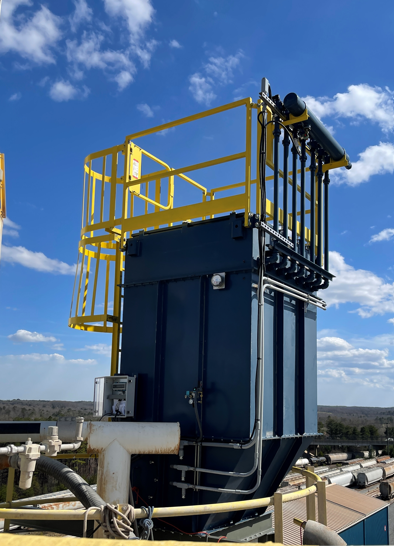Optimizing Indoor Air Quality – Benefits of Dust Collectors in Commercial Spaces
In today’s commercial environments, maintaining optimal indoor air quality IAQ is crucial not only for employee health and comfort but also for compliance with regulations and enhancing productivity. One effective solution for improving IAQ is the use of dust collectors. These systems are designed to capture and remove airborne particles, providing numerous benefits to businesses across various industries.
Understanding Dust Collectors
Dust collectors are specialized filtration systems that capture dust, dirt, and other particulate matter from the air. They are essential in settings such as manufacturing plants, woodworking shops, and warehouses, where dust can accumulate and lead to health hazards. By employing various filtration methods such as baghouse filters, cartridge filters, and electrostatic precipitators dust collectors ensure that the air remains clean and safe for workers at www.tysum.com.

Health Benefits
The most immediate benefit of dust collectors is the improvement in worker health. Airborne dust can contain harmful particles, including allergens, respiratory irritants, and even toxic substances. Prolonged exposure to these contaminants can lead to serious health issues, such as asthma, bronchitis, and other respiratory diseases. By effectively removing these particles from the air, dust collectors help create a healthier work environment, reducing sick days and improving overall employee well-being.
Enhanced Productivity
A clean working environment is directly linked to increased productivity. When employees are not distracted by dust-related health issues, they can focus better on their tasks. Additionally, excessive dust can damage equipment and machinery, leading to costly repairs and downtime. Dust collectors minimize this risk by keeping the work area cleaner, thereby extending the life of machinery and reducing maintenance costs. This ultimately contributes to a more efficient operation and enhances overall productivity.
Compliance with Regulations
In many industries, maintaining specific air quality standards is not just a matter of employee comfort it is also a legal requirement. Regulations set by agencies such as the Occupational Safety and Health Administration OSHA mandate that employers take measures to protect workers from airborne hazards. Implementing a dust collection system can help businesses comply with these regulations, avoiding potential fines and legal issues while demonstrating a commitment to workplace safety.
Environmental Benefits
Dust collectors also contribute to environmental sustainability. By reducing dust emissions into the atmosphere, these systems help decrease the overall pollution levels in and around commercial facilities. This not only benefits the local environment but also helps companies meet their sustainability goals. Investing in dust collection technology can enhance a company’s image as a responsible and environmentally-conscious entity.
The implementation of dust collector cfm chart in commercial spaces is a strategic decision that can lead to numerous benefits. From improving indoor air quality and safeguarding employee health to enhancing productivity and ensuring compliance with regulations, dust collectors are an invaluable asset for businesses. As companies increasingly prioritize health and sustainability, investing in advanced dust collection systems is a forward-thinking solution that not only protects employees but also contributes to the overall success of the organization. By taking proactive measures to optimize indoor air quality, businesses can create a safer, more productive work environment that benefits everyone involved.